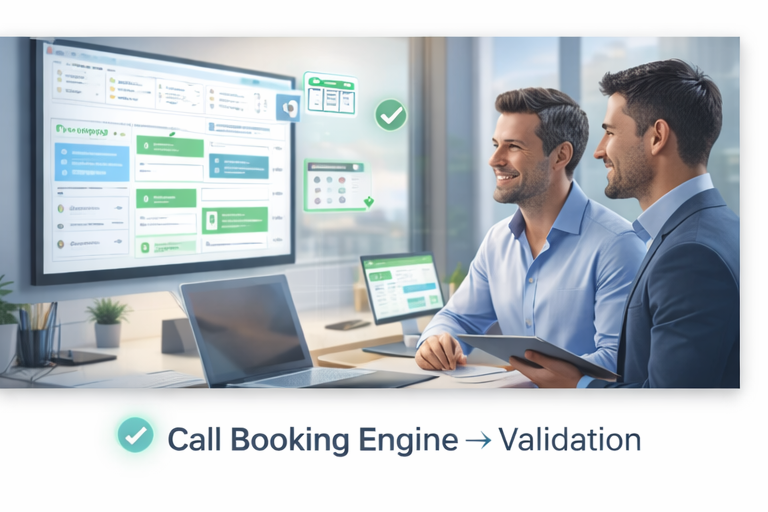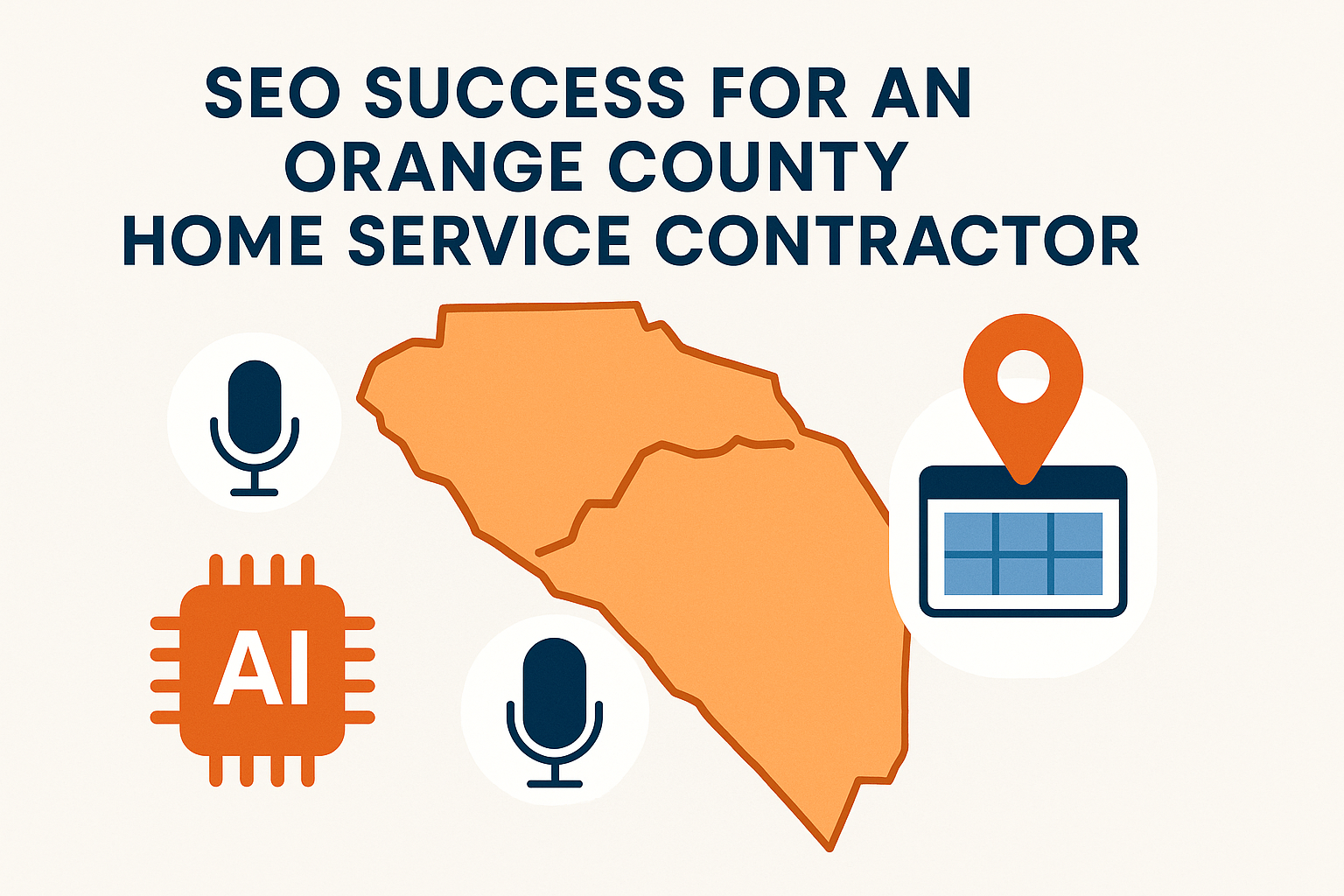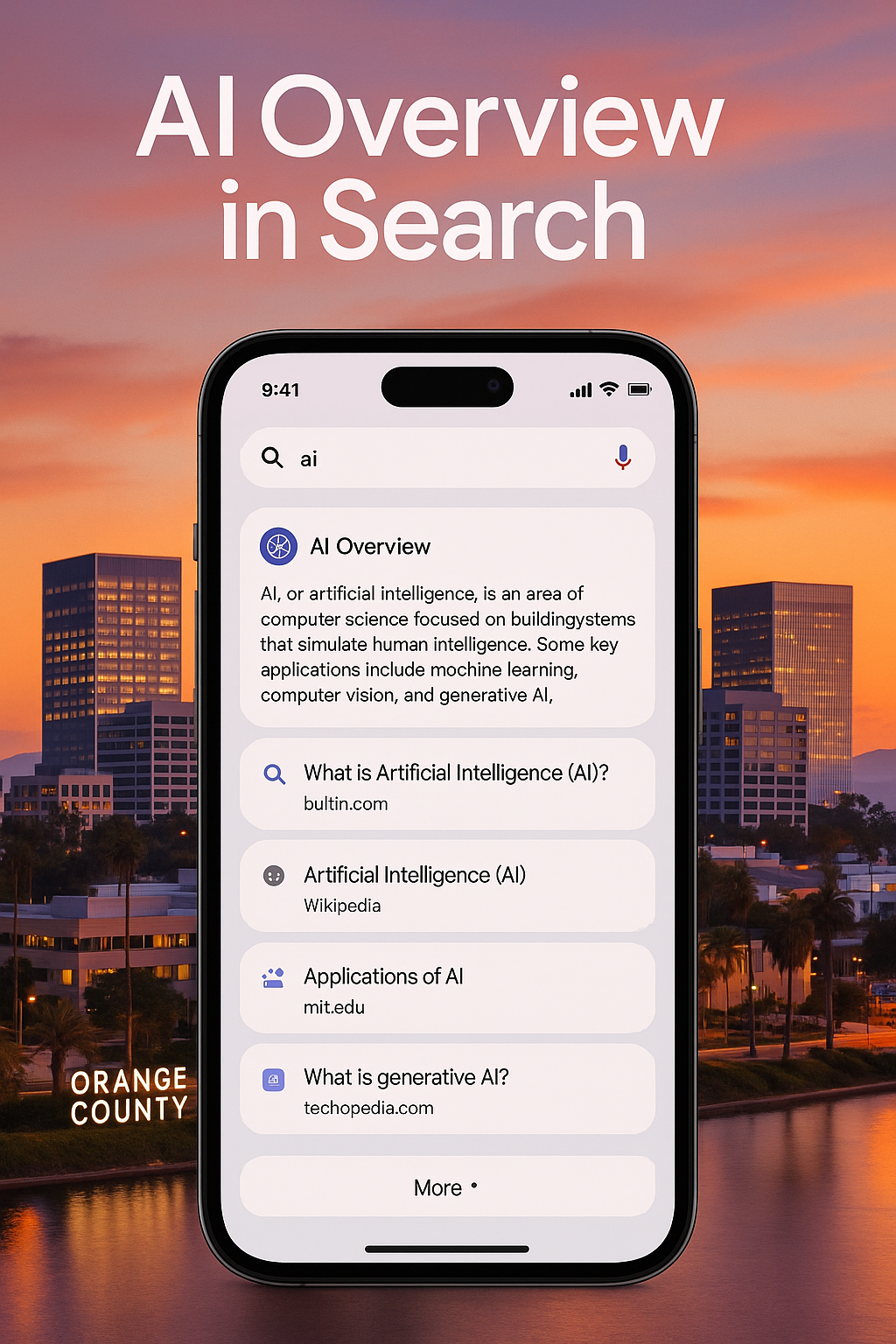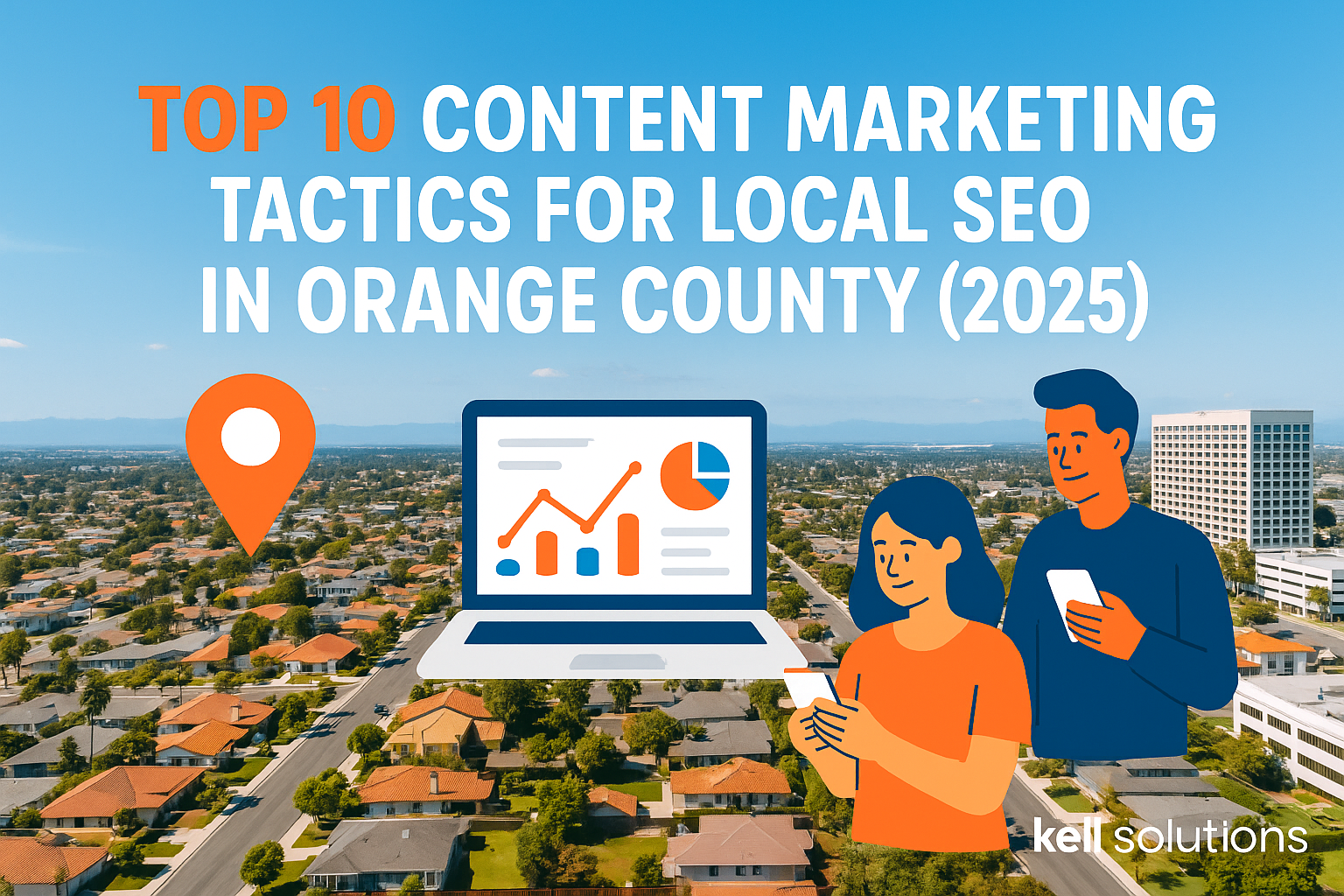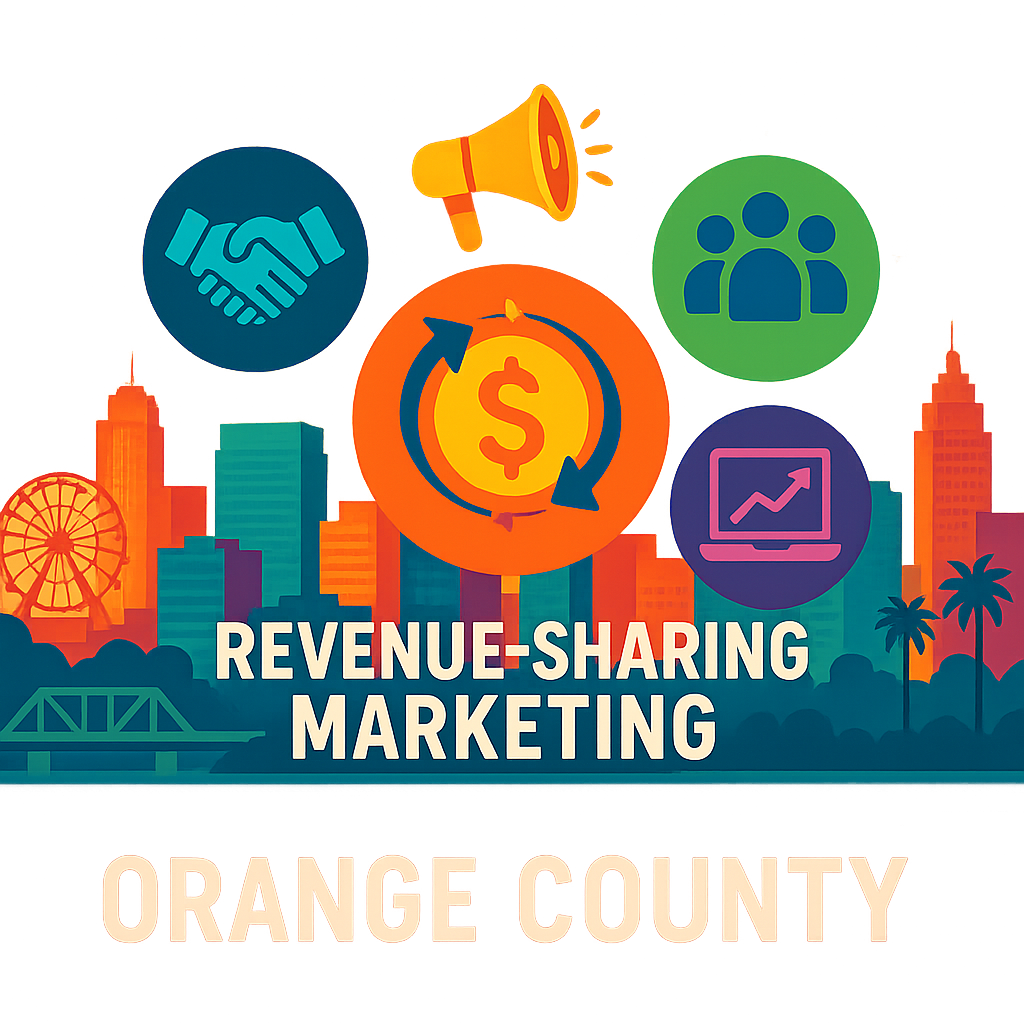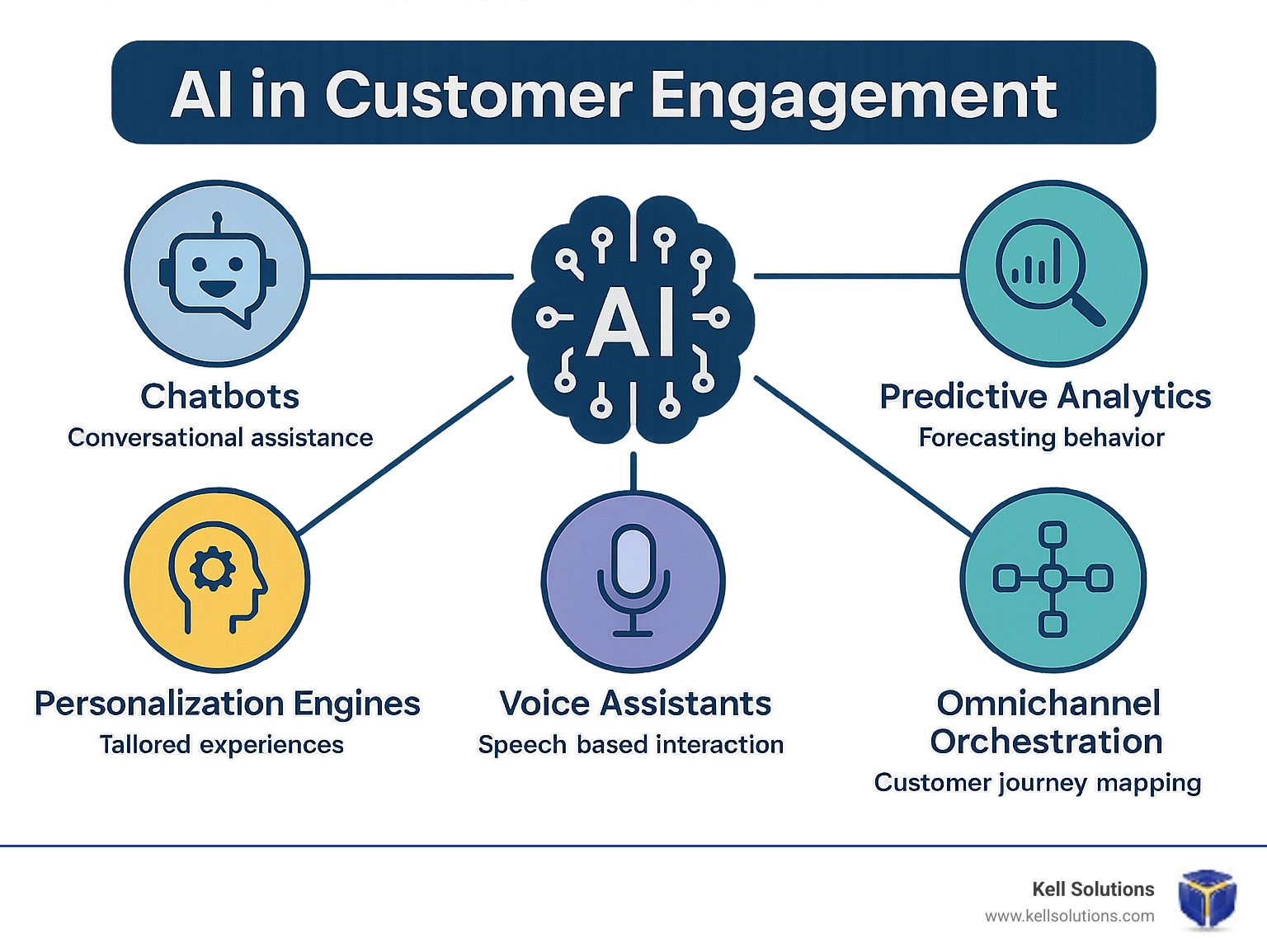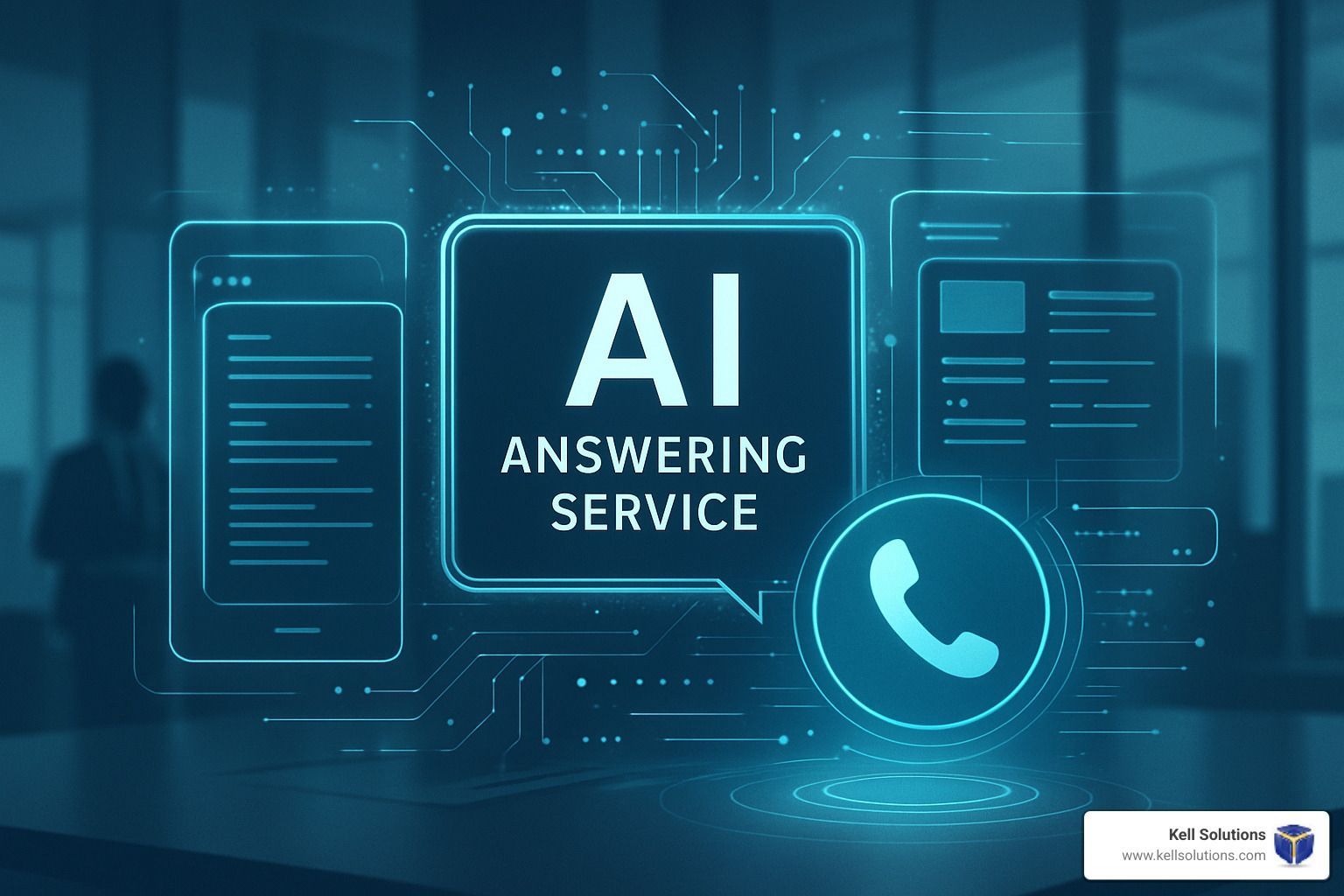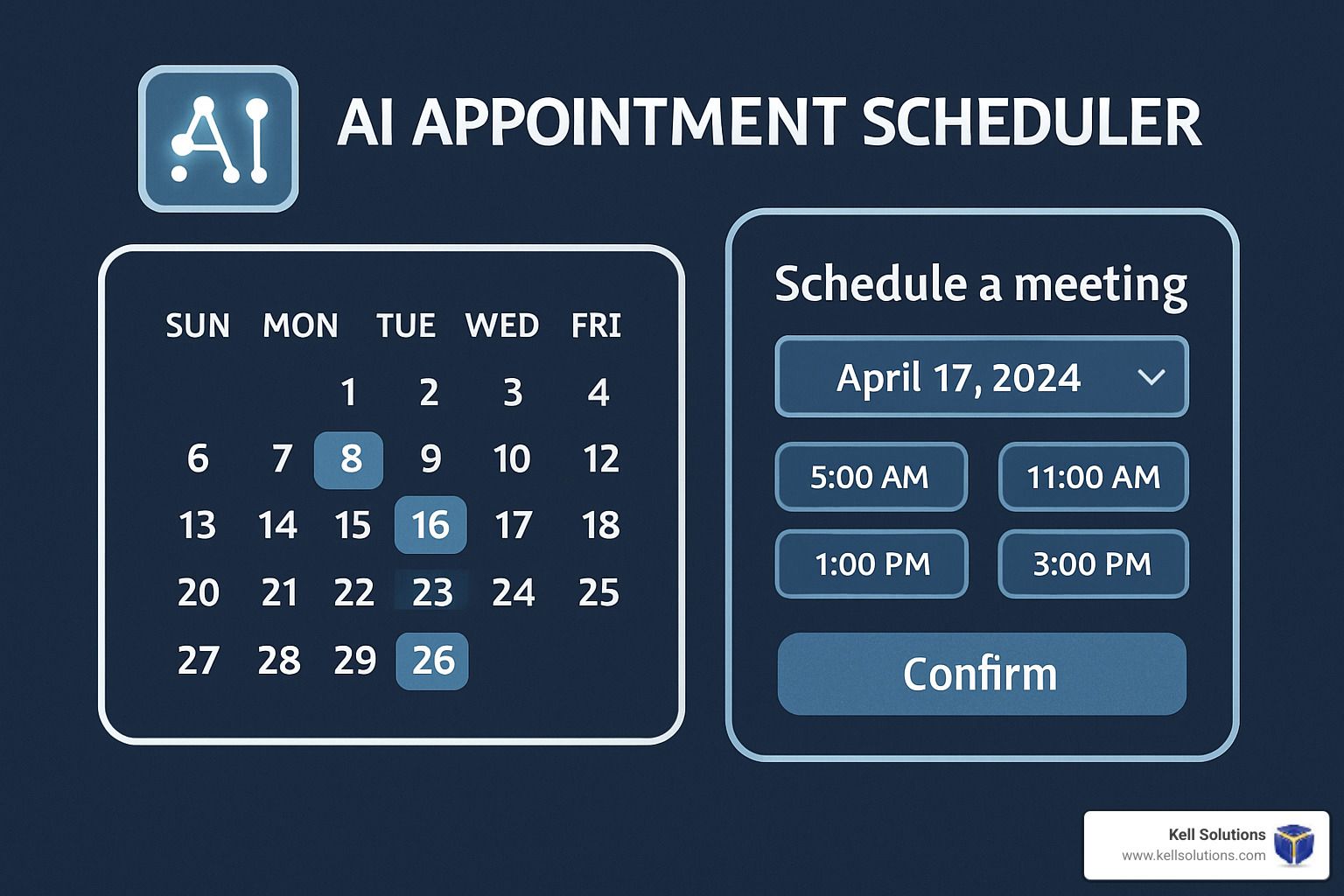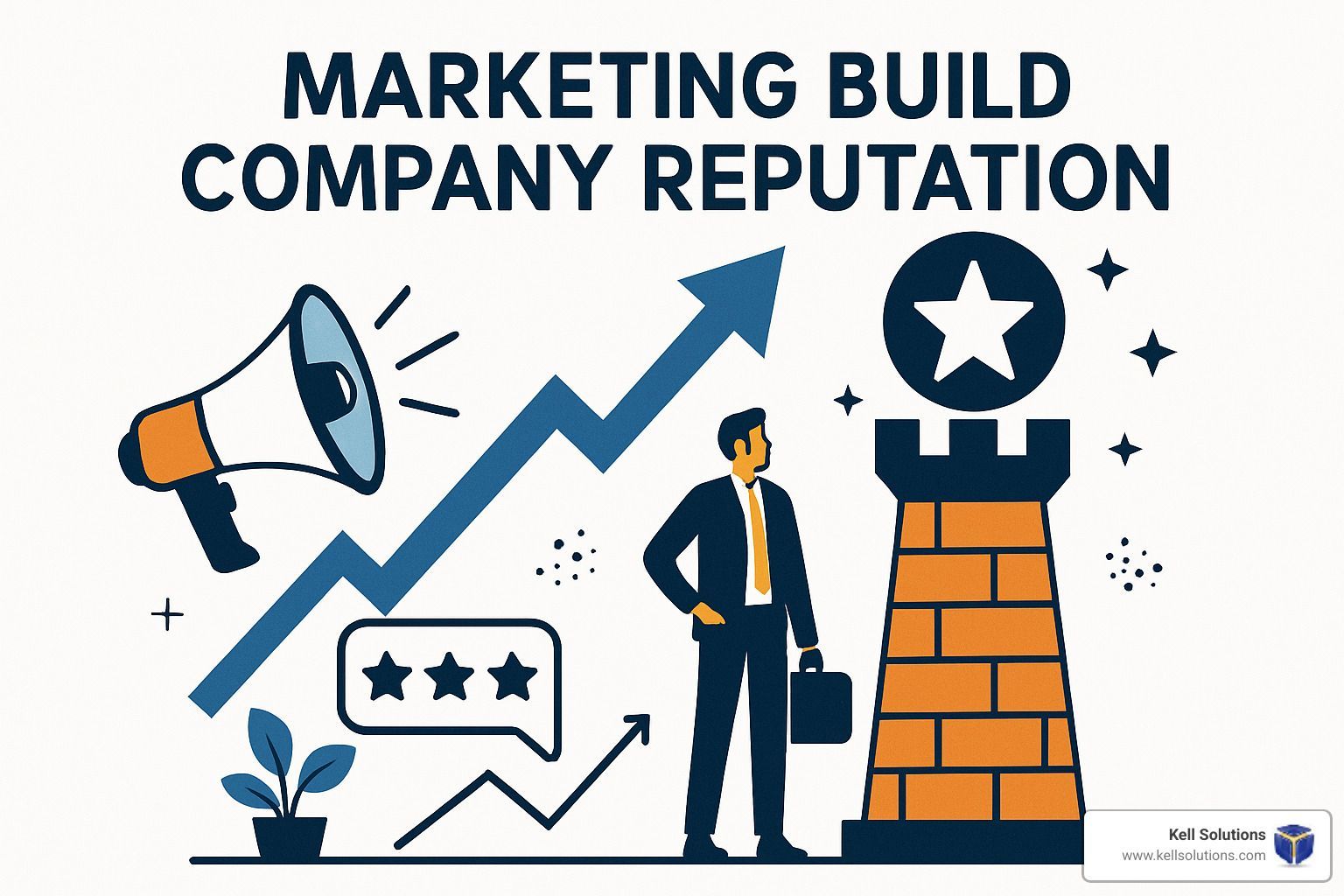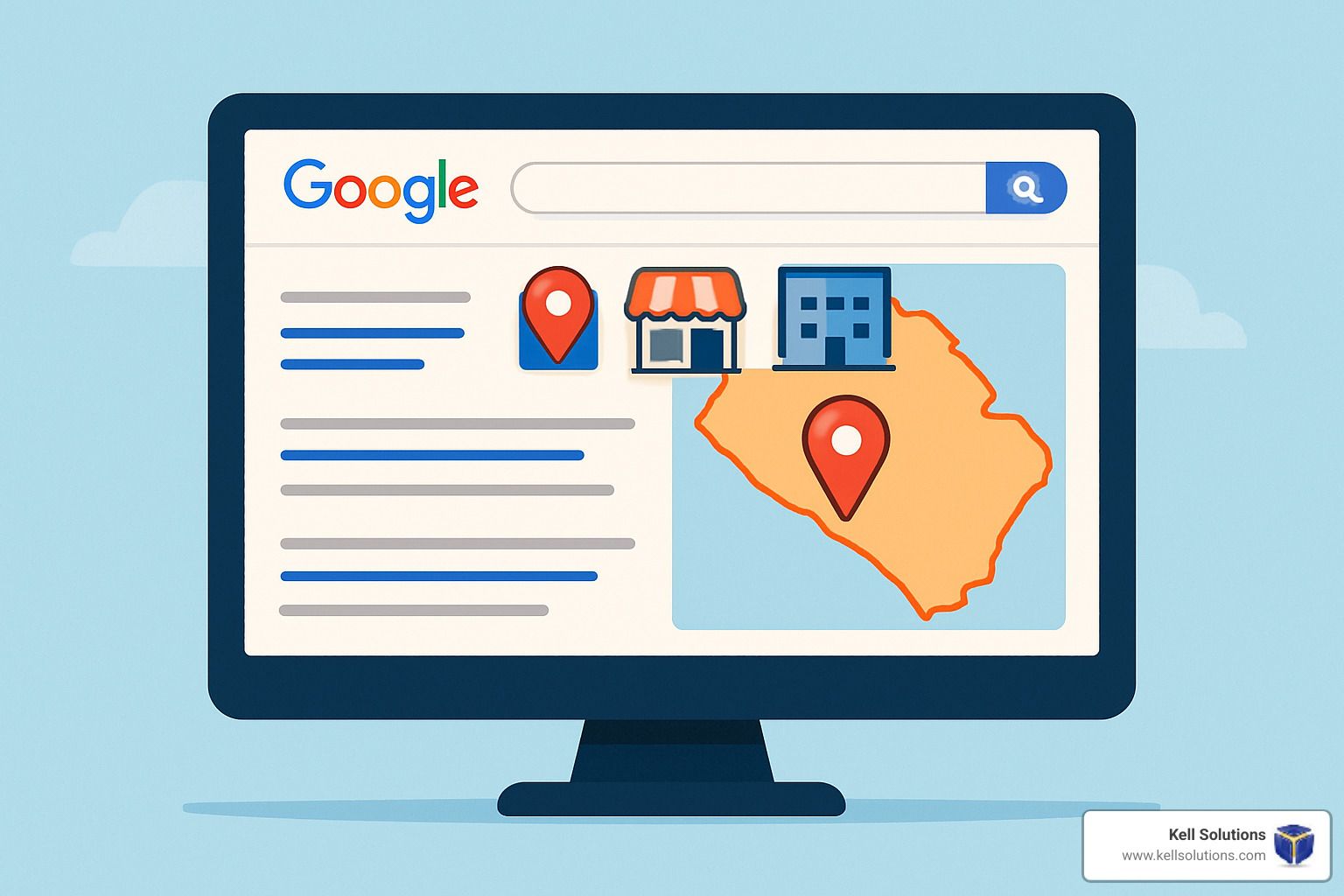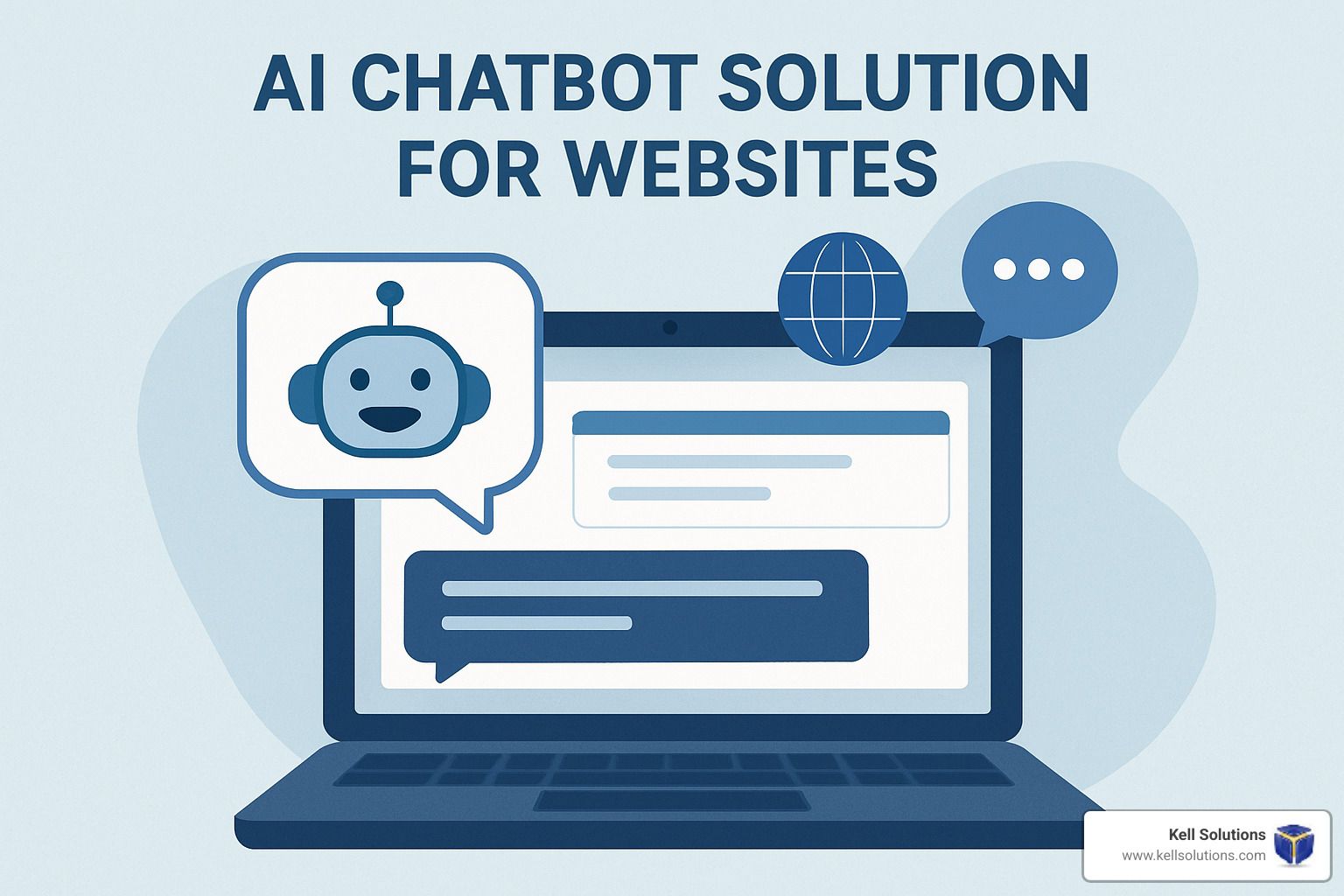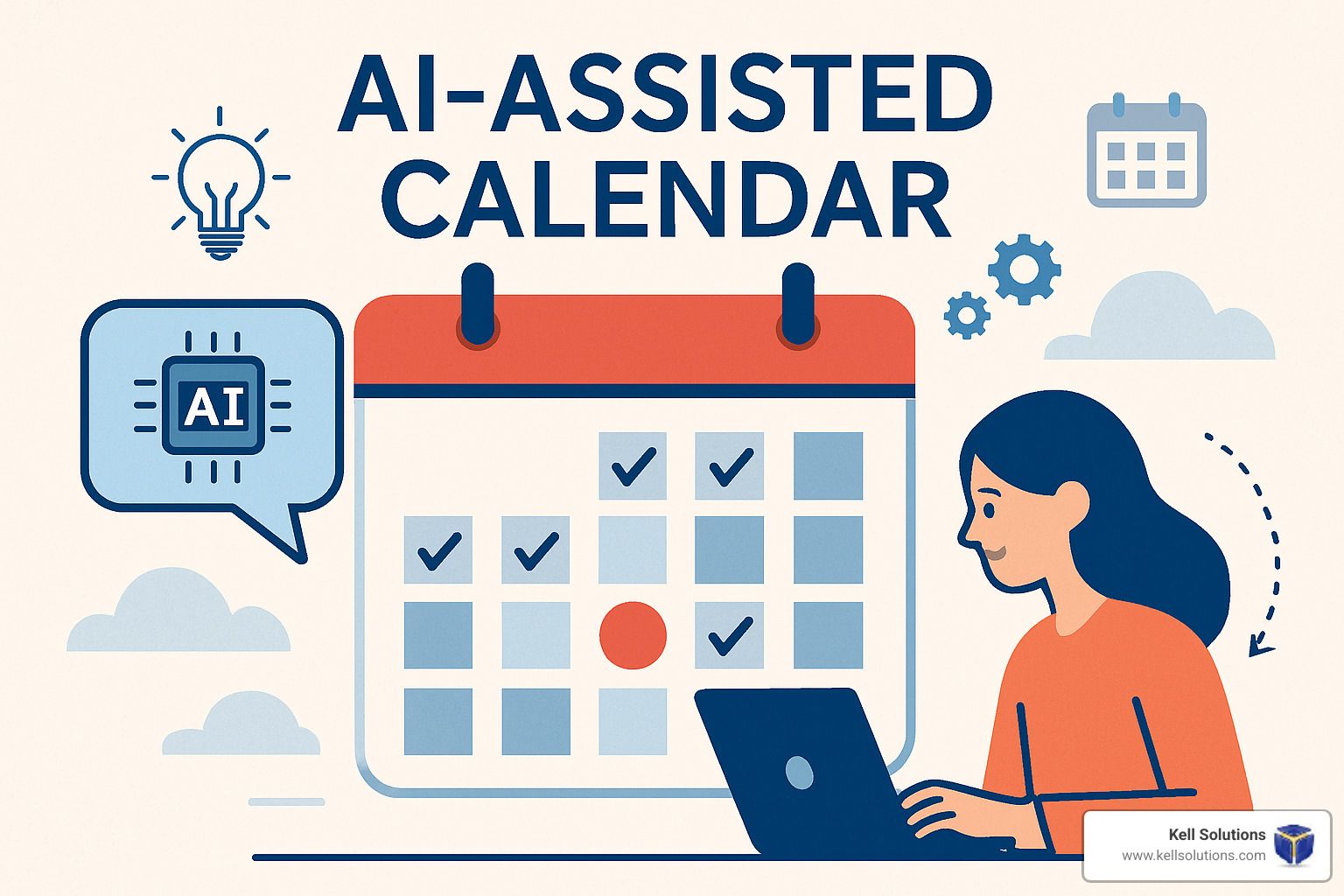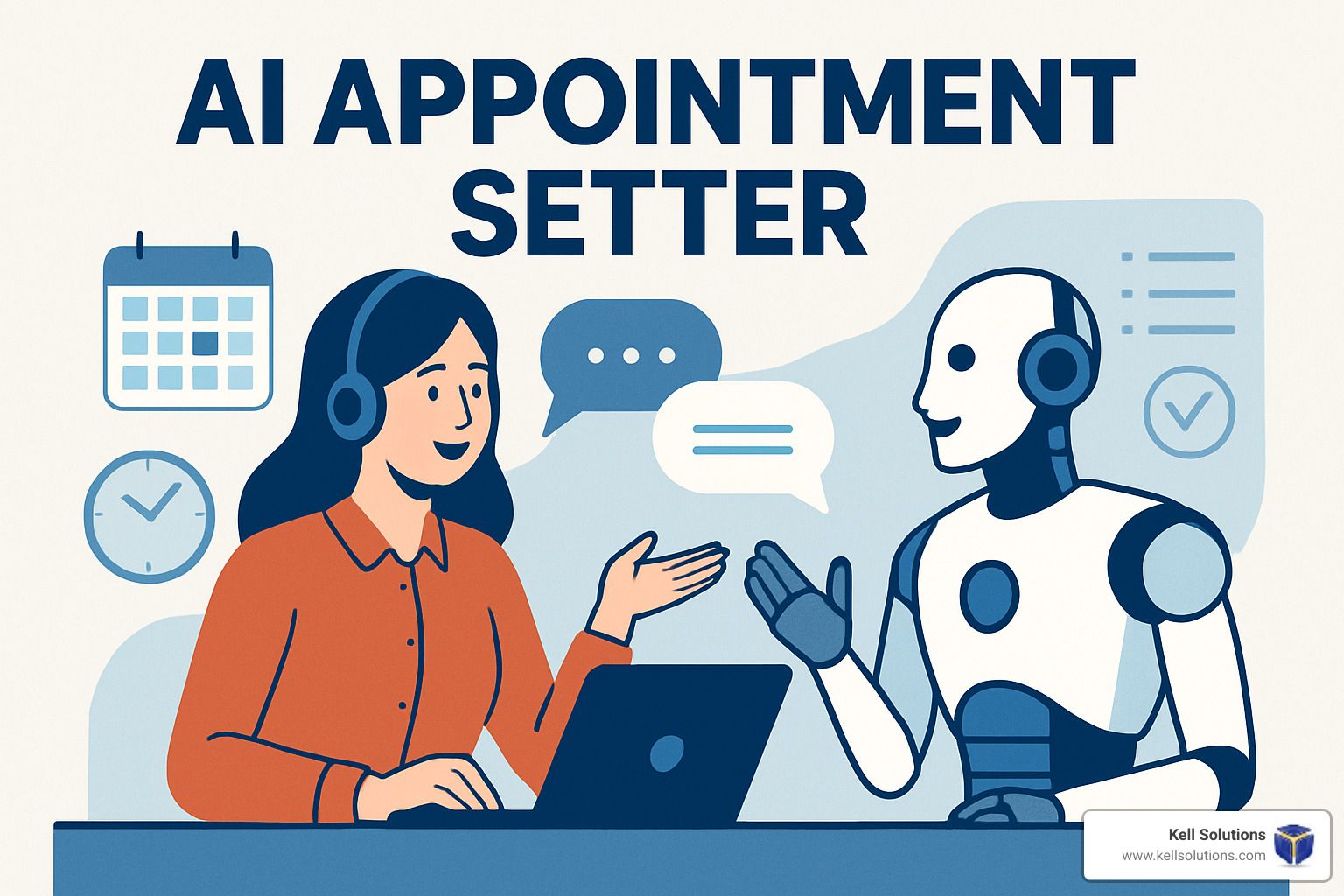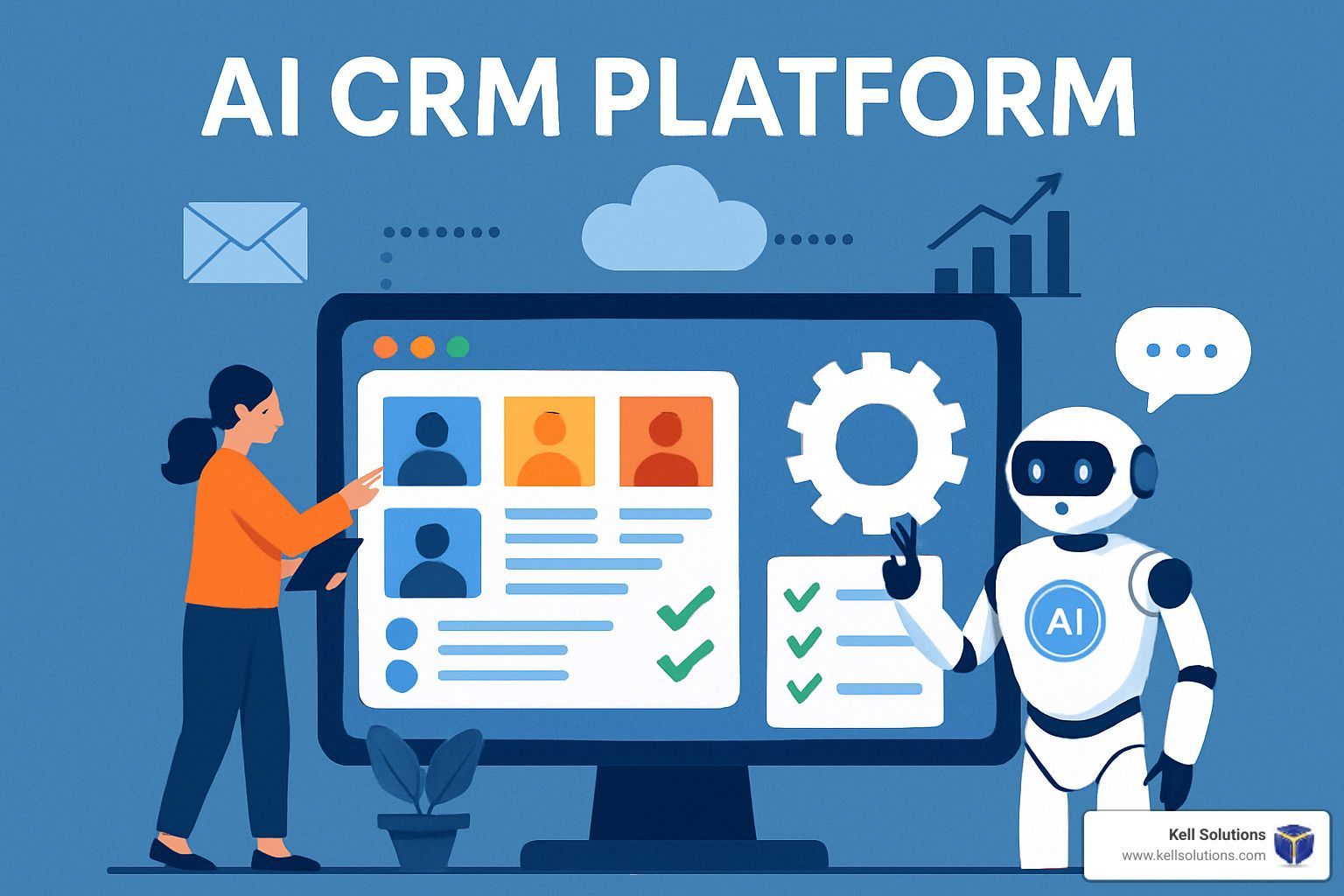Emerging AI Trends, Strategies & Opportunities for Small Businesses
Staying Ahead in a Competitive Market

Key Takeaways
- 73% of small businesses using AI automation report cost reductions of up to 41% while simultaneously reducing errors by 62%
- Voice AI technology is revolutionizing customer service for SMBs, converting missed calls into captured leads and revenue opportunities
- Low-code AI solutions now make advanced technology accessible to businesses without dedicated IT departments
- Small businesses implementing AI-powered inventory management systems are reducing stockouts by up to 30%
- VoiceGenie AI is helping small businesses compete with larger enterprises by providing affordable, scalable AI solutions that transform customer interactions
AI is Transforming Small Business: Here's What You Need to Know
The artificial intelligence revolution is no longer reserved for tech giants and enterprise corporations. Small businesses across every sector are leveraging AI to level the playing field, with 73% now automating high-volume tasks—reducing costs by 41% and errors by 62%. VoiceGenie AI is at the forefront of this transformation, providing small businesses with powerful tools previously available only to large corporations with substantial tech budgets. This shift isn't just about efficiency—it's fundamentally changing how small businesses compete, innovate, and deliver value to their customers.
The adoption curve has reached a critical inflection point. A few years ago, implementing AI required specialized teams and significant investment. Today, user-friendly platforms offer ready-to-deploy solutions for everyday business challenges. From intelligent chatbots that handle customer inquiries to predictive analytics that forecast inventory needs, these technologies are becoming as essential as having a website or accepting credit card payments.
What's most compelling is that these aren't futuristic possibilities—they're current realities being embraced by forward-thinking small business owners right now. The businesses seeing the most dramatic results aren't just adopting AI—they're strategically implementing it to address specific pain points and create measurable competitive advantages. Let's explore the most impactful trends and how you can leverage them, regardless of your technical expertise or budget constraints.
5 Game-Changing AI Trends Small Businesses Can't Ignore
The AI landscape is evolving rapidly, but not all innovations are equally relevant for small businesses. Based on implementation data from thousands of SMBs, these five trends offer the most immediate impact and accessible entry points.
Automated Customer Service Tools That Pay For Themselves
Customer service automation has evolved far beyond frustrating phone trees and generic chatbots. Today's AI-powered service tools use natural language processing to understand context, sentiment, and intent—delivering personalized responses that genuinely solve problems. Small businesses implementing these solutions report average cost savings of $3,500-$5,000 monthly while simultaneously improving customer satisfaction scores by 27%.
What makes these tools particularly valuable for small businesses is their ability to scale your personal touch. Rather than replacing the human element that differentiates small businesses, modern AI enhances it by handling routine inquiries while freeing your team to focus on complex customer needs. The most effective implementations allow seamless handoffs between AI and human agents when conversations require nuance or empathy that algorithms can't yet provide.
"We implemented an AI voice assistant that answers basic questions and schedules appointments. It's like having an extra team member who works 24/7 without complaints or coffee breaks. The system paid for itself within 6 weeks and now handles 73% of our incoming calls."
—Maria Sanchez, Owner, Bayside Salon
AI-Powered Marketing That Predicts Customer Behavior
The most significant marketing shift for small businesses isn't just automation—it's prediction. AI algorithms can now analyze customer data to identify patterns and predict future behaviors with remarkable accuracy. This capability, once exclusive to companies with data science teams, is now accessible through user-friendly platforms that integrate with your existing CRM and marketing tools.
These predictive systems enable small businesses to anticipate customer needs, personalize communications, and time offers for maximum impact. For example, AI can identify which customers are likely to make repeat purchases, what products they'll be interested in next, and even the optimal time to send promotional messages. The results speak for themselves: businesses using predictive marketing report conversion rate improvements averaging 31% and customer retention increases of 23%.
Low-Code AI Solutions Anyone Can Implement
The democratization of AI through low-code and no-code platforms represents perhaps the most important trend for small businesses with limited technical resources. These accessible solutions use visual interfaces and pre-built components that allow non-technical users to create sophisticated workflows without writing a single line of code.
Popular platforms like Zapier, Make (formerly Integromat), and Airtable now offer AI capabilities that can be implemented through simple drag-and-drop interfaces. Small businesses are using these tools to automate everything from lead qualification to social media content generation. The key advantage is rapid implementation—what once required months of development can now be accomplished in days or even hours.
This accessibility has particularly benefited service-based businesses and retail operations, where margins are tight and technical expertise is often limited. A landscaping company in Colorado, for instance, used a low-code platform to create an AI system that automatically generates maintenance schedules based on weather forecasts, property conditions, and crew availability—increasing job completions by 22% without adding staff.
Voice AI Technology That Never Misses a Call
Missing customer calls is a silent revenue killer for small businesses. Studies show that 85% of customers who can't reach a business on their first attempt will not call back, representing thousands in lost opportunities annually. Voice AI technology has emerged as a game-changing solution, with platforms like VoiceGenie AI enabling small businesses to capture every lead without expanding staff or hours of operation.
These intelligent voice agents go far beyond traditional voicemail by engaging callers in natural conversation, answering questions, scheduling appointments, and even qualifying leads based on customizable criteria. The technology integrates seamlessly with existing phone systems and business software, making implementation straightforward even for businesses with limited technical resources.
What makes this trend particularly valuable is its ability to solve multiple problems simultaneously: improving customer experience, reducing operational costs, and capturing revenue that would otherwise be lost. Businesses implementing voice AI report average increases in captured leads of 37% and significant improvements in customer satisfaction scores, especially among younger demographics who prefer immediate responses regardless of business hours.
Smart Inventory Management Systems That Prevent Stockouts
Inventory management has traditionally been a pain point for small retailers and manufacturers, with the constant balancing act between overstocking (which ties up capital) and stockouts (which cost sales). AI-powered inventory systems are transforming this challenge by analyzing sales patterns, seasonal fluctuations, supplier lead times, and even external factors like weather or local events.
These systems provide small businesses with enterprise-grade forecasting capabilities at a fraction of the cost, with many solutions starting at under $100 per month. The most effective implementations combine historical data analysis with real-time adjustments based on current sales velocity. For retail businesses operating on tight margins, the ability to reduce inventory holding costs while simultaneously improving product availability can significantly impact overall profitability.
- Automatically adjusts order quantities based on sales velocity and lead times
- Predicts seasonal demand fluctuations with 87-93% accuracy
- Alerts staff to potential stockouts before they occur
- Identifies slow-moving inventory for targeted promotions
- Integrates with point-of-sale and e-commerce platforms for unified inventory management
How Small Businesses Are Already Winning With AI
The most compelling evidence for AI's impact comes from small businesses already implementing these technologies. These aren't isolated success stories—they represent reproducible results achieved with accessible, affordable solutions.
Local Retail Shop Increases Sales 32% With Personalization AI
Riverfront Books, an independent bookstore competing against online giants, implemented an AI recommendation engine that analyzes purchase history and browsing behavior to create personalized suggestions for each customer. The system works through their existing point-of-sale system and e-commerce site, requiring minimal technical setup or maintenance.
The results were transformative: a 32% increase in average transaction value and a 41% improvement in repeat customer visits within six months of implementation. The personalization engine identifies patterns in customer preferences that human staff might miss, suggesting complementary titles based on subtle connections between authors, themes, and genres.
What makes this implementation particularly noteworthy is how it enhances rather than replaces the personal touch that distinguishes independent bookstores. Staff members receive the AI recommendations through their terminals, allowing them to incorporate the suggestions into natural conversations with customers—creating a hybrid approach that combines algorithmic precision with human warmth.
Service Business Recovers $6,000+ in Previously Lost Leads
Summit Plumbing, a family-owned service business with eight technicians, faced a common challenge: capturing after-hours calls when potential customers needed immediate assistance. Traditional answering services proved inconsistent, with many callers hanging up rather than leaving messages. By implementing a voice AI solution, they created a system that engages callers in natural conversation, answers common questions, provides pricing information, and schedules appointments directly into their field service management software.
Within the first three months, the system captured 47 after-hours service appointments that would have otherwise been lost—representing over $6,000 in additional revenue. The voice agent also pre-qualifies emergency calls, routing urgent situations to on-call technicians while scheduling non-emergencies for regular business hours. This improved both customer satisfaction and technician work-life balance.
The implementation process took less than a week, including customizing the voice agent's responses to match the company's tone and service offerings. The monthly cost of the AI system is approximately one-tenth what they would pay for 24/7 human answering services, with significantly better conversion rates.
Manufacturing Company Cuts Waste by 41% Using Predictive Analytics
- Implemented machine learning algorithms to analyze production line data
- Identified patterns that predicted quality issues before they occurred
- Optimized material usage based on historical performance data
- Reduced waste-related costs from $12,000 to $7,000 monthly
Midwest Fabricators, a custom metal components manufacturer with 23 employees, faced increasing pressure from larger competitors with more sophisticated quality control systems. Rather than investing hundreds of thousands in equipment upgrades, they implemented an AI-powered predictive analytics solution that interfaces with their existing machinery through simple sensors.
The system analyzes data from the production process to identify subtle patterns that precede quality issues—variations in temperature, vibration, or other factors that human operators might not detect until defects appear. By alerting operators to these conditions before problems occur, the company reduced material waste by 41% and cut quality-related rework by 37% within five months.
What's particularly notable about this implementation is its affordability. Instead of replacing equipment, the solution augments existing machinery through retrofitted sensors and a cloud-based analytics platform. The total implementation cost was under $15,000, with monthly operating expenses of approximately $650—delivering complete ROI within four months.
The Real Costs and Benefits of AI for Your Small Business
Implementing AI doesn't require enterprise-level budgets anymore. The democratization of artificial intelligence has created a marketplace where small businesses can access powerful tools at reasonable price points. Understanding the actual costs and realistic returns helps you make informed decisions about which AI investments make sense for your specific situation.
Actual Price Ranges for Different AI Solutions
AI pricing structures have evolved significantly, with many solutions now available through subscription models that scale with your business. Customer service chatbots typically range from $30-$300 monthly depending on complexity and conversation volume.
Voice AI systems like those from VoiceGenie AI start around $99 monthly for basic configurations and scale based on call volume and feature requirements. Marketing automation platforms with AI capabilities generally run $100-$500 monthly for small business implementations, while inventory management systems with predictive capabilities typically cost $75-$250 monthly plus initial setup fees.
Return on investment timelines vary by solution type and implementation scope, but most small businesses are seeing faster payback periods than ever before. Customer service AI typically delivers measurable ROI within 2-4 months through reduced labor costs and improved conversion rates. Voice AI systems often achieve breakeven in 1-3 months by capturing previously lost leads and reducing missed opportunities. Marketing AI shows more variable timelines, with basic implementations showing results in 3-4 months while more sophisticated predictive systems may take 4-6 months to deliver maximum value as they gather and analyze customer data.
The most immediate returns generally come from automation of repetitive, high-volume tasks that previously consumed significant staff time. For example, a real estate agency implementing an AI system to qualify and route leads reported ROI within 17 days by freeing up administrative staff for higher-value activities while simultaneously improving lead response times from hours to minutes. Continuously evaluate performance metrics against your baseline measurements to track progress and identify optimization opportunities.
Hidden Costs to Avoid When Implementing AI
While AI has become more accessible, certain implementation pitfalls can erode your ROI if not properly managed. Data preparation costs are frequently underestimated—many businesses discover their existing information is too disorganized or inconsistent to effectively train AI systems without cleanup. Integration expenses can exceed expectations when connecting AI tools with legacy systems that lack modern APIs. Ongoing maintenance requirements also surprise some businesses, particularly when customizations are needed to keep pace with changing business conditions.
To avoid these hidden costs, prioritize solutions with proven integration capabilities for your existing business software. Conduct small pilot projects before full-scale implementation to identify potential issues. Most importantly, factor in staff training time—even the most intuitive AI systems require some adjustment period as employees learn to work alongside and trust the technology. Select vendors who provide comprehensive onboarding support and clear documentation to minimize this transition period.
Step-by-Step AI Implementation Plan for Small Businesses
Successful AI implementation follows a structured approach that minimizes disruption while maximizing results. This roadmap has been refined through hundreds of small business deployments to create a reliable path to AI integration, regardless of your technical expertise or starting point.
1. Identify Your Biggest Operational Pain Points
Begin by documenting your most significant operational challenges and their business impact. Are you losing leads due to slow response times? Struggling with inventory accuracy? Spending too many hours on manual data entry? The most successful AI implementations target specific pain points rather than adopting technology for its own sake. Quantify the current costs of these challenges—in dollars, time, and missed opportunities—to establish a clear baseline for measuring improvement. This analysis not only helps prioritize your AI investments but also builds internal buy-in by demonstrating the tangible value of technological change.
2. Select the Right AI Tools for Your Specific Needs
With your priorities established, research solutions specifically designed for your identified pain points. Evaluate options based on implementation complexity, integration capabilities with your existing systems, and total cost of ownership. Prioritize vendors with experience serving businesses of your size and industry, as they'll better understand your unique challenges. Request case studies or references from similar companies to verify results. Most importantly, look for solutions that offer tiered pricing or modular features that allow you to start small and expand as you see results.
- Create a shortlist of 3-5 potential solutions
- Request demonstrations focused on your specific use cases
- Ask about implementation timeframes and support resources
- Confirm all integration requirements with your current systems
- Verify pricing structure and contract flexibility
3. Start Small: Your First 30-Day AI Project
Begin with a contained pilot project that delivers quick wins while minimizing disruption. The ideal first project automates a single, well-defined process with clear success metrics. For example, implementing a voice AI system to handle after-hours calls provides immediate value without requiring extensive process changes. Document baseline performance before implementation, then track improvements weekly. This approach builds confidence and expertise that can be applied to more complex AI initiatives while generating early wins that reinforce the value of your technology investment.
4. Train Your Team Without Technical Expertise
Effective team training focuses on practical application rather than technical understanding. Your staff doesn't need to know how machine learning algorithms work—they need to understand how the AI tools will change their daily workflow and improve their results. Create simple process documents that outline new procedures, emphasizing how AI handles routine tasks while empowering employees to focus on higher-value activities. Address concerns about job security directly by highlighting how automation enhances rather than replaces human capabilities. Schedule regular check-ins during the first few weeks to address questions and gather feedback for system refinements.
5. Measure Success With These Simple Metrics
Establish clear, quantifiable metrics to track your AI implementation's impact. Time savings can be measured through before-and-after comparisons of task completion. Revenue impact should be tracked through conversion rates, captured leads, and average transaction values. Customer experience improvements can be quantified through satisfaction scores, response times, and resolution rates. Create a simple dashboard to monitor these metrics weekly, identifying both wins to celebrate and areas needing adjustment. This data-driven approach ensures your AI investments deliver continuing value while providing justification for further expansion.
"The key to successful AI implementation isn't just selecting the right technology—it's having a clear measurement framework. When we implemented voice AI, we tracked not just call volume handled but also conversion rates and customer satisfaction. This data showed us exactly where to optimize for maximum impact."
—Carlos Rivera, Founder, Rivera Heating & Cooling
Ethical AI Practices That Build Customer Trust
As AI becomes more prevalent in customer interactions, ethical implementation isn't just a moral imperative—it's a business advantage. According to recent data, 68% of consumers now consider a company's AI ethics when making purchasing decisions. Small businesses have a unique opportunity to differentiate themselves through transparent, responsible AI practices that respect customer privacy and promote fairness.
Ethical Concern Business Impact Implementation Strategy Data Privacy 71% of customers worry about how their data is used Clear opt-in policies, data minimization practices Transparency 83% prefer knowing when they're interacting with AI Disclosure of AI use, explanation of decision processes Algorithmic Bias Can damage reputation and create legal liability Regular testing for unfair outcomes, diverse training data Human Oversight Builds confidence in AI-assisted decisions Clear escalation paths to human staff when needed Small businesses actually have an advantage in ethical AI implementation. Your closer customer relationships and simpler technology stacks make it easier to maintain transparency and ensure appropriate oversight. By making ethical considerations a core part of your AI strategy rather than an afterthought, you build deeper customer trust while reducing regulatory and reputational risks.
The most successful businesses view ethical AI as an extension of their existing values rather than a separate initiative. If your business prides itself on personalized service and customer relationships, your AI implementation should reflect and enhance these qualities rather than undermining them with impersonal or opaque interactions.
Transparency Guidelines That Set You Apart
Implement clear disclosure practices that inform customers when they're interacting with AI systems. This transparency builds trust by setting appropriate expectations and demonstrating respect for customer autonomy. Simple notifications like "I'm an AI assistant designed to help with scheduling" before voice interactions or clear labeling of chatbot conversations show customers you're being forthright about technology use. The most effective approach combines disclosure with explanation—helping customers understand not just that they're interacting with AI but also how the system works and what safeguards are in place.
Data Privacy Protections Your Customers Expect
Responsible data practices form the foundation of ethical AI implementation. Begin by collecting only information that directly serves customer needs, with explicit permission for each use case. Implement strong security measures including encryption and access controls to protect this information from unauthorized use. Create and publish a simple, jargon-free privacy policy that clearly explains what data you collect, how it's used, and how customers can request deletion.
These practices aren't just ethical—they're increasingly required by regulations like GDPR, CCPA, and emerging state-level privacy laws. By implementing strong data protection now, you future-proof your business against regulatory changes while building customer confidence in your AI systems. VoiceGenie AI has built comprehensive privacy protections into their platform, making compliance straightforward even for businesses without dedicated privacy teams.
Avoiding Algorithmic Bias in Customer Interactions
Algorithmic bias occurs when AI systems produce unfair or discriminatory outcomes due to flaws in their training data or design. For small businesses, this risk is particularly relevant in customer service, marketing, and credit-related applications. Regularly test your AI systems with diverse user profiles to identify and address any systematic differences in outcomes or experiences. Ensure your training data represents the full diversity of your customer base to prevent the system from developing biased response patterns.
The most effective bias prevention combines technological and human approaches. Implement regular audits of AI decisions to identify potential patterns of unfairness. Create clear escalation paths that allow customers to reach human staff when they feel the AI system isn't serving them appropriately. Document these processes to demonstrate your commitment to fairness and provide accountability.
Small businesses that proactively address algorithmic bias protect themselves from reputational damage and potential legal issues while creating more inclusive customer experiences. This attention to fairness can become a competitive advantage, particularly among younger demographics who increasingly consider ethical practices in their purchasing decisions.
Remember that AI ethics isn't a one-time implementation but an ongoing commitment. As your AI systems evolve and expand, regularly reassess their impact on different customer groups and adjust as needed to ensure fair, respectful interactions for everyone you serve.
"The most successful small businesses aren't just adopting AI—they're adopting AI right." — Jensen Huang, NVIDIA CEO
Future-Proof Your Business With These AI Strategies
The AI landscape continues to evolve rapidly, but small businesses can implement forward-thinking strategies that ensure long-term relevance and competitive advantage. Focus on building adaptable foundations rather than chasing every new technology trend. Prioritize solutions with open APIs and strong integration capabilities that can evolve with your business needs. Develop an AI roadmap that aligns with your overall business strategy, identifying how intelligent automation can support your growth objectives over the next 2-3 years. By taking a thoughtful, strategic approach to AI adoption, you position your business to thrive in an increasingly automated marketplace while maintaining the personal connection that differentiates small businesses from their larger competitors.
Frequently Asked Questions
Small business owners consistently raise similar questions about AI implementation. These practical answers address the most common concerns based on real-world implementation experiences across hundreds of businesses.
How much money does a small business need to invest in AI?
Entry-level AI implementations now start at $50-$100 monthly for basic solutions, with more comprehensive packages ranging from $250-$500 monthly. Most businesses see positive ROI within 2-6 months depending on the specific application. The key is starting with focused solutions addressing clear pain points rather than attempting comprehensive digital transformation. Many vendors now offer tiered pricing models that allow you to start with essential features and expand as you see results, minimizing upfront investment risk.
Modern AI solutions are increasingly designed for non-technical users, with visual interfaces and pre-built templates eliminating the need for coding or data science expertise. Look for vendors offering guided setup processes and comprehensive support resources. The most successful implementations assign a project owner who serves as the main point of contact with the vendor, but this person doesn't need technical skills—just good organizational abilities and a clear understanding of your business processes. Many AI providers now offer "done-for-you" implementation services specifically designed for small businesses without IT departments.
What's the fastest way to see results from AI implementation?
Voice AI systems typically deliver the quickest results, often showing measurable improvements within 2-4 weeks by capturing previously missed opportunities and improving response times. Customer service automation also provides rapid returns through reduced support costs and improved resolution rates. To accelerate results, clearly define success metrics before implementation and focus on quick-win use cases that address existing inefficiencies or revenue leaks. Companies that begin with a specific, well-defined problem consistently see faster results than those pursuing broader digital transformation initiatives.
How can I ensure my AI tools comply with data privacy regulations?
Select vendors with built-in compliance features specifically designed for your jurisdiction's regulations. Request documentation on their data handling practices, retention policies, and security measures. Implement clear customer consent processes for data collection and use, with simple opt-out mechanisms. Regular audits of your data practices help identify potential compliance gaps before they become problems. The best practice is developing a simple data governance policy that outlines what information you collect, how it's used, and how long it's retained—even if not legally required in your jurisdiction.
For industry-specific regulations like HIPAA or financial services requirements, look for AI solutions with specialized compliance features and certifications relevant to your field. These purpose-built tools often cost slightly more than general-purpose solutions but save significantly on compliance management and risk mitigation.
Which AI trend offers the best ROI for service-based businesses?
Voice AI consistently delivers the strongest returns for service businesses by solving the critical challenge of lead capture and appointment scheduling. Service companies implementing voice AI systems report average increases in captured leads of 37-43% and efficiency improvements of 22-31% in scheduling and dispatch operations. The ability to provide 24/7 responsiveness without staffing costs creates immediate value, while integration with field service management software streamlines operations from initial contact through service delivery. VoiceGenie AI's solutions are particularly effective for service businesses, with implementation timeframes of less than a week and typical ROI achievement within 60 days.
For maximum impact, integrate your voice AI system with your customer relationship management and scheduling tools to create an end-to-end workflow. This integration eliminates manual data entry and ensures consistent customer information across all touchpoints—maximizing both efficiency and service quality.
The most successful implementations use AI to handle initial contact, qualification, and scheduling while reserving human interaction for complex problem-solving and relationship building. This hybrid approach delivers the efficiency of automation while preserving the personal connection that differentiates small service businesses.
VoiceGenie AI helps small businesses transform customer interactions through intelligent voice technology, allowing you to capture every opportunity while focusing your team on high-value activities. Learn how our affordable, easy-to-implement solutions can help your business compete with larger enterprises while maintaining the personal touch your customers value.
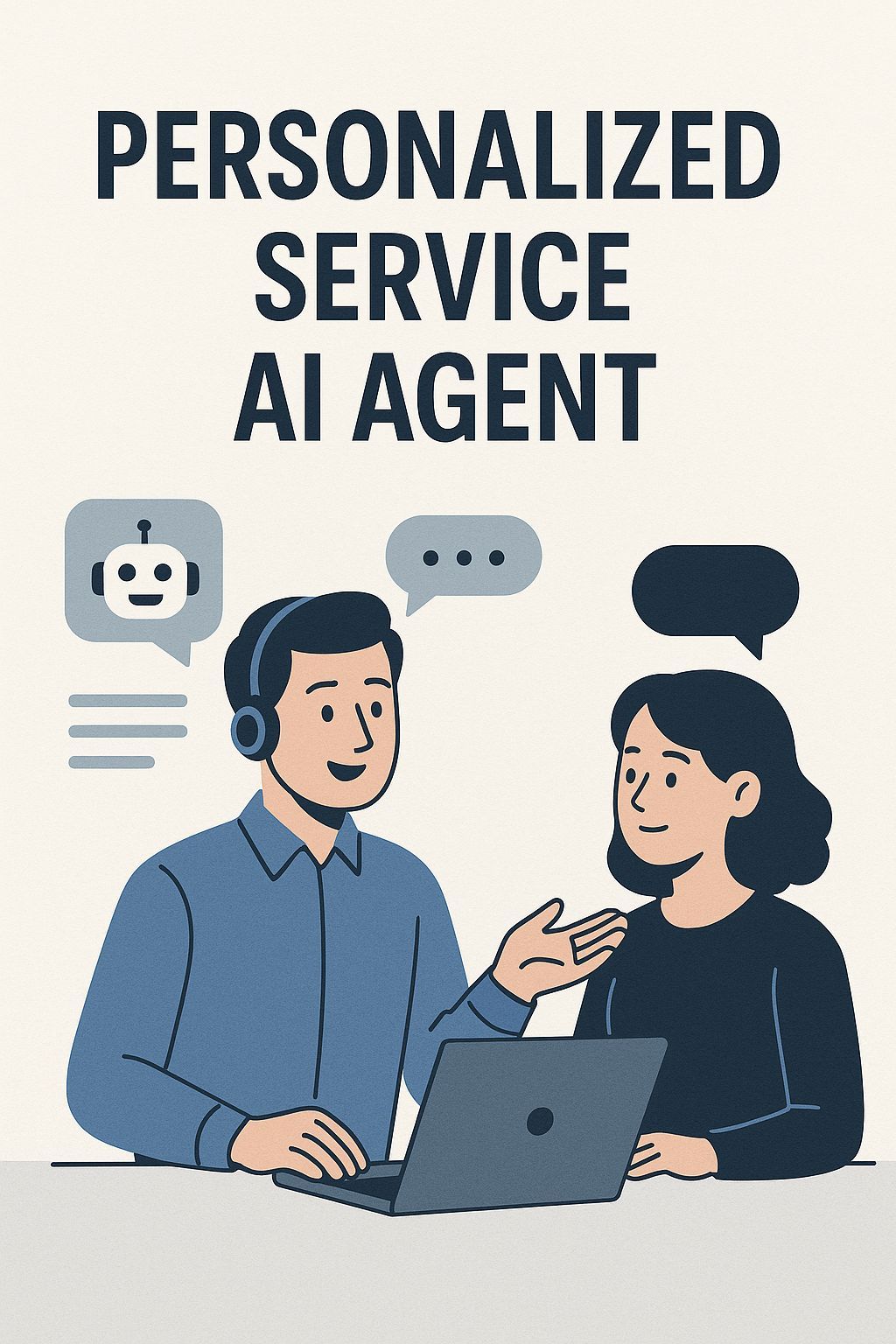

Orange County HVAC Google AI Overview Domination: 7 Proven Strategies to Capture Featured AI Results




